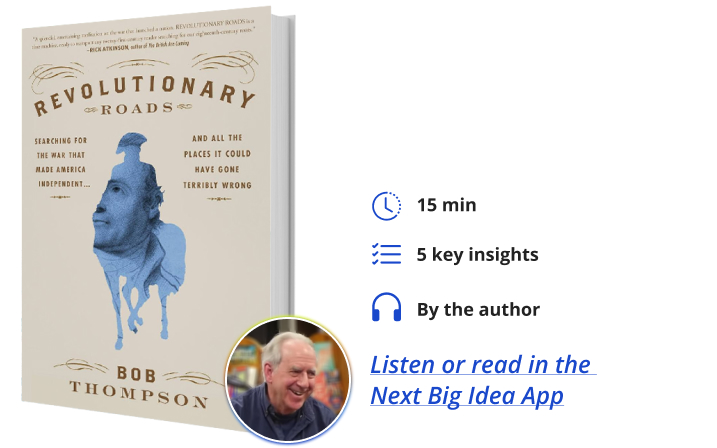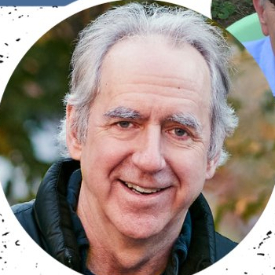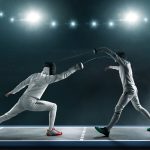Bob Thompson was a long-time feature writer for The Washington Post and editor of its Sunday magazine. He is known for his pieces on the intersection of history and myth.
Below, Bob shares 5 key insights from his new book, Revolutionary Roads: Searching for the War That Made America Independent… and All the Places It Could Have Gone Terribly Wrong. Listen to the audio version—read by Bob himself—in the Next Big Idea App.

1. Hindsight distorts the picture.
It’s a little known fact among Americans today that we could easily have llost the war for independence. This could have happened after a disastrous battle in Brooklyn in the summer of 1776, with George Washington and half his army almost taken prisoner. It could have also happened early in 1777 at Trenton, New Jersey. Not at the Battle of Trenton we know about, for which Washington famously crossed the Delaware, but at a second Battle of Trenton, fought eight days later. During that second battle, the British came dangerously close to defeating Washington. If they had, we would scarcely remember that triumphant first battle.
Here’s another major way that hindsight distorts the picture: One of the most persistent misconceptions about the Revolutionary War is that it had to end with either side victorious. Six years into the war and three years after France joined the fight, a more likely scenario was peace negotiations in which the European powers would have held all the cards. Think of it as a kind of diplomatic freeze tag in which each side got to keep the territory it currently held. Now picture a fragile, new nation lacking most of the South, New York City, Long Island, and parts of northern New England, with Britain retaining vast swaths of territory west of the Appalachians, and you’ll have an idea how different that outcome would have been.
2. Some turning points are invisible.
Whilst traveling the revolutionary roads, there were many turning points. Some are well known, First Trenton and Saratoga, for example. Others are much less known, like Oriskany or Waxhaws. However, there were also turning points no traveler can see, like the French intervention that made the decisive victory at Yorktown possible.
“An incredible number of things had to go right for that fleet to get to Yorktown on time.”
“We are at the end of our tether,” Washington wrote in the spring of 1781. “Now or never, deliverance must come.” He was talking about additional help from France, the alliance having so far produced few positive results. Then, as if to answer his plea, an enormous French fleet showed up off the Virginia coast four months later and helped bottle up a British army there. An incredible number of things had to go right for that fleet to get to Yorktown on time, the first being that, had the British Navy been on its toes, that fleet wouldn’t even have made it out of the harbor in France.
3. Accidental heroes can change the world.
There are plenty of new things to learn about famous revolutionary heroes (hello, George) and about others who are largely unknown. The war’s accidental heroes can often be the most surprising. Take the American officer who, amid “the roar of musketry, the shouting men, the cries of the wounded and the dying,” on a vital South Carolina battlefield, misunderstood a command and mistakenly ordered his men to retreat. Nightmare! Except it turned out that his blunder allowed his side to win.
Another fellow on the list of unknowns who accidentally saved the Revolution was James Livingston. In September 1780, Livingston commanded a post 12 miles down the Hudson River from West Point. Benedict Arnold, as it happened, was about to turn West Point over to the British, giving them control of the Hudson and perhaps allowing them to nab Washington in the process. Livingston, knowing nothing of Arnold’s treason, ordered two cannons to open fire on a British warship. That drove the warship downriver and triggered a chain of unlikely events that resulted in Arnold’s flight, the hanging of a British accomplice, and the foiling of a plot that, many believe, could have ended the war.
4. What’s left out of stories is crucial.
African Americans, free and enslaved, worked and fought for both sides during the Revolution. More sided with the British, who began liberating those enslaved to rebels early on. Few Americans today understand how slavery’s end might have been accelerated if we had recruited enslaved men to fight in return for their freedom, as Rhode Island did briefly. Such a plan also came to be fiercely debated in South Carolina. That plan’s idealistic young author, John Laurens, remained obscure, at least until he made his Broadway debut in Hamilton.
“Few Americans today understand how slavery’s end might have been accelerated if we had recruited enslaved men to fight in return for their freedom.”
There’s a bigger story to be told here, though. Many of the enslaved didn’t wait to be recruited. As historian Gary Nash writes, they “took advantage of wartime disruption to obtain their freedom in any way they could.” Some joined rebel armies, even in the South. Others fled west, but most often, freedom-seekers ran to the British Army. Running was dangerous, yet many thousands did so, staging “the first large-scale rebellion of American slaves,” a rebellion that was “never duplicated during the remainder of the slave era.”
Much that resulted was tragic. For one thing, gatherings of previously isolated people were vulnerable to disease, especially smallpox, which was epidemic during the war. Still, we need to ask ourselves: Why doesn’t the largest rebellion of enslaved Americans before the Civil War get bigger play in our revolutionary story?
5. We should ask more “what if” questions.
Most historians don’t like to deal with questions about what if X, or Y, or Z had happened, and with good reason. The correct answer is always: we will never know. Yet, it’s essential to keep asking those questions anyway because one of our basic impulses, when we think about the past, is to assume that things happened because they had to happen. They did not. Something different could have happened. This insight is as true for what made the news last week as it is for what took place on a battlefield in 1775.
To listen to the audio version read by author Bob Thompson, download the Next Big Idea App today:































